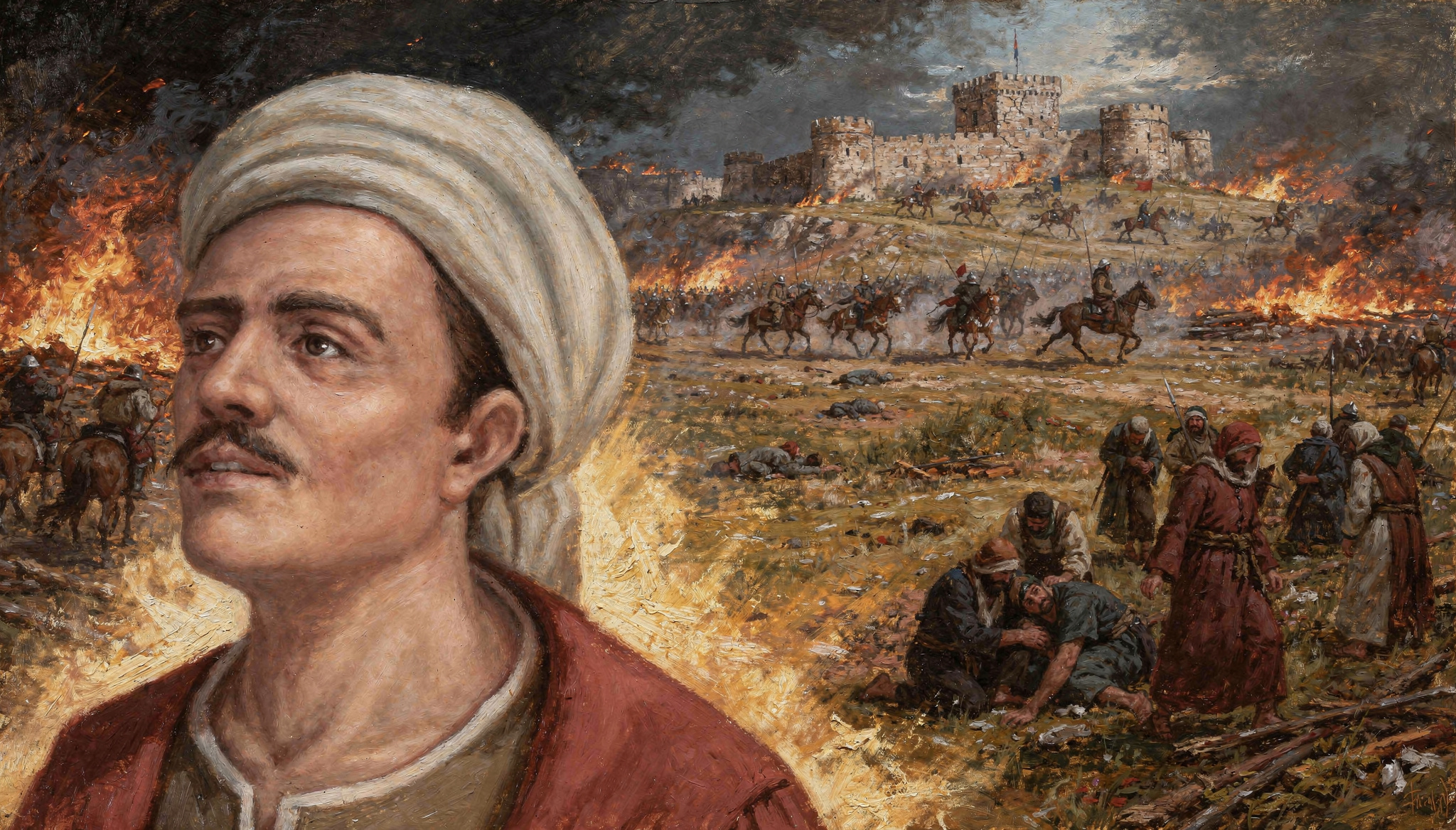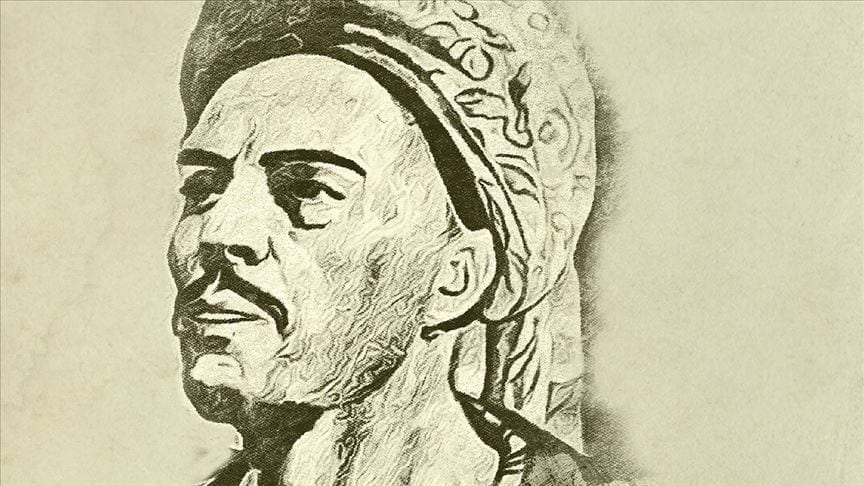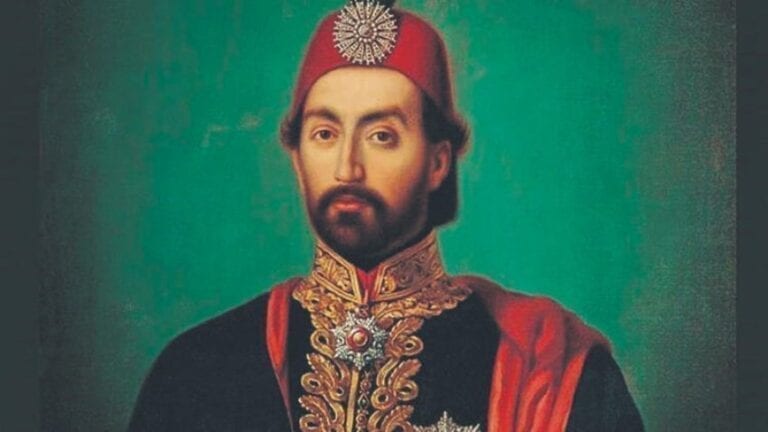Yunus Emre: The Mystic Who Made Turkish the Language of Love
Table of Contents
Picture Anatolia in the 13th century. It wasn’t the holiday destination we know today; it was a land on fire. The Mongol invasions were sweeping across the plains, the Seljuk Empire was crumbling, and the average person was caught in a cycle of famine, war, and chaos. In this darkness, a voice emerged that didn’t call for revengeit called for love. That voice belonged to Yunus Emre.
Yunus Emre wasn’t just a poet; he was a spiritual paramedic for a bleeding nation. While the educated elites and court officials spoke and wrote in Persian, Yunus did something revolutionary: He spoke Turkish. He took the complex, high minded mysticism of Sufism and translated it into the language of the shepherds and farmersthe people who actually kept the country running. Today, over 700 years later, his message of radical humanism is perhaps more relevant than ever.

Who Was the Man Behind the Myth?
Historical facts about Yunus Emre are as scarce as peace was in his time. Researchers date his birth to approximately 1240 AD (often cited as 1238). He was likely born in Sarıköy, a village in the modern district of Mihalıççık in Eskişehir province. His life spanned one of the most turbulent eras in Turkish history: the painful transition from the Seljuks to the rise of the Ottoman Empire.
Unlike the courtly elite who lived in palaces, Yunus was a man of the soil. He wandered as a dervish through Anatolia, Azerbaijan, and as far as Damascus. But his most important journey wasn’t across the mapit was internal. He wasn’t looking for fame; he was looking for truth. He spoke to the common people, those whose livelihoods depended on the land and Turkish milk production and farming, proving that wisdom wasn’t reserved for the wealthy.
The Legend: Wheat vs. Breath
To truly understand Yunus Emre, you have to look at the legends that define his character. The most famous story involves his meeting with the great mystic Hacı Bektaş Veli. During a severe famine, a young Yunus went to the dervish lodge to ask for wheat. Hacı Bektaş offered him something else instead: his “Nefes” (a blessing or spiritual breath). Yunus, focused on survival, refused and insisted on the wheat.
On his way home, the realization hit him: The wheat would be consumed and gone in days, but the spiritual blessing would have lasted forever. He rushed back, but Hacı Bektaş sent him to a different teacher: Tapduk Emre. This story symbolizes the shift from seeking material survival to seeking spiritual maturity. Yunus reportedly served Tapduk Emre for 40 years, carrying only straight wood into the lodge because, as he famously said, “At this gate, nothing crooked may enter, not even wood.”
The Linguistic Revolution: Why Turkish?
The secret to his enduring fame lies in his choice of words. In the 13th century, Turkish was often dismissed as a “rough language” of the peasantry. High literature was almost exclusively written in Persian (like Rumi’s famous Masnavi). Yunus Emre broke this tradition. He proved that Turkish was capable of expressing the deepest philosophical and mystical concepts.
His style is called Sehl i Mümteni: It looks so simple that you think you could write it yourselfuntil you try and realize the depth you’re missing. He took the complex cultural richness of Islam and made it accessible to everyone. His verses are like a finely woven rug: simple materials on the surface, but infinitely complex in their pattern.
His Masterpieces: Divan and Risâletü’n Nushiyye
Yunus Emre left us two main works that are still studied today, offering a window into the soul of Anatolia:
- The Divan: A collection of his Yunus Emre poetry, mostly written in the syllabic meter (Hece Vezni) used in Turkish folk music. This is where you find his famous hymns about Divine Love (Aşk).
- Risâletü’n Nushiyye (Book of Advice): Written around 1307/1308, this is a didactic poem. It is more structured and serious than the Divan, focusing on the battle between the Spirit and the Ego (Nefs). It serves as a guide for navigating the moral struggles of life.
Sufism: The Doctrine of Unity
For Yunus, Sufism wasn’t an academic theory; it was a way of life. His philosophy can be summarized in one sentence: “Yaratılanı hoş gör, Yaratandan ötürü” (Love the created for the sake of the Creator). He taught that the path to God leads directly through the human heart. You cannot be a true believer if you break the hearts of others.
This was a radical message. In an era defined by Crusades and Mongol warfare, he preached social peace and the equality of all humans, regardless of their background or religion. While today we might get caught up in the bureaucracy of civil procedureslike the paperwork required for getting married in Turkey—Yunus focused on a spiritual union that transcended all earthly laws.
Death and Legacy: One Grave Is Not Enough
Yunus Emre died around the year 1321 at the age of 80. But if you ask people in Turkey where he is buried, you’ll get a dozen different answers. From Eskişehir to Karaman to Erzurum, numerous cities claim to host his tomb. This isn’t a historical error; it’s a testament to how deeply he was loved. Every town wanted him.
Today, his mausoleum in Mihalıççık (Eskişehir) is the officially recognized site. However, his influence is felt far beyond a single location, permeating the culture to the point where his spirit is celebrated not just on specific public holidays in Turkey, but in the everyday language of the people. As Yunus himself likely would have said: “My grave is not in the earth, but in the hearts of the lovers.”








